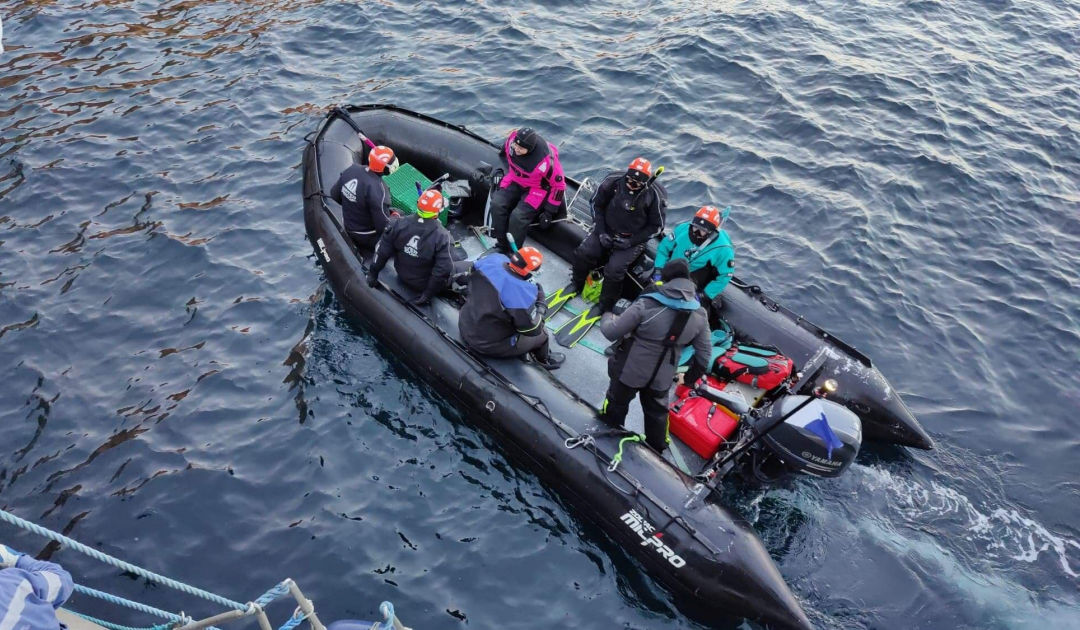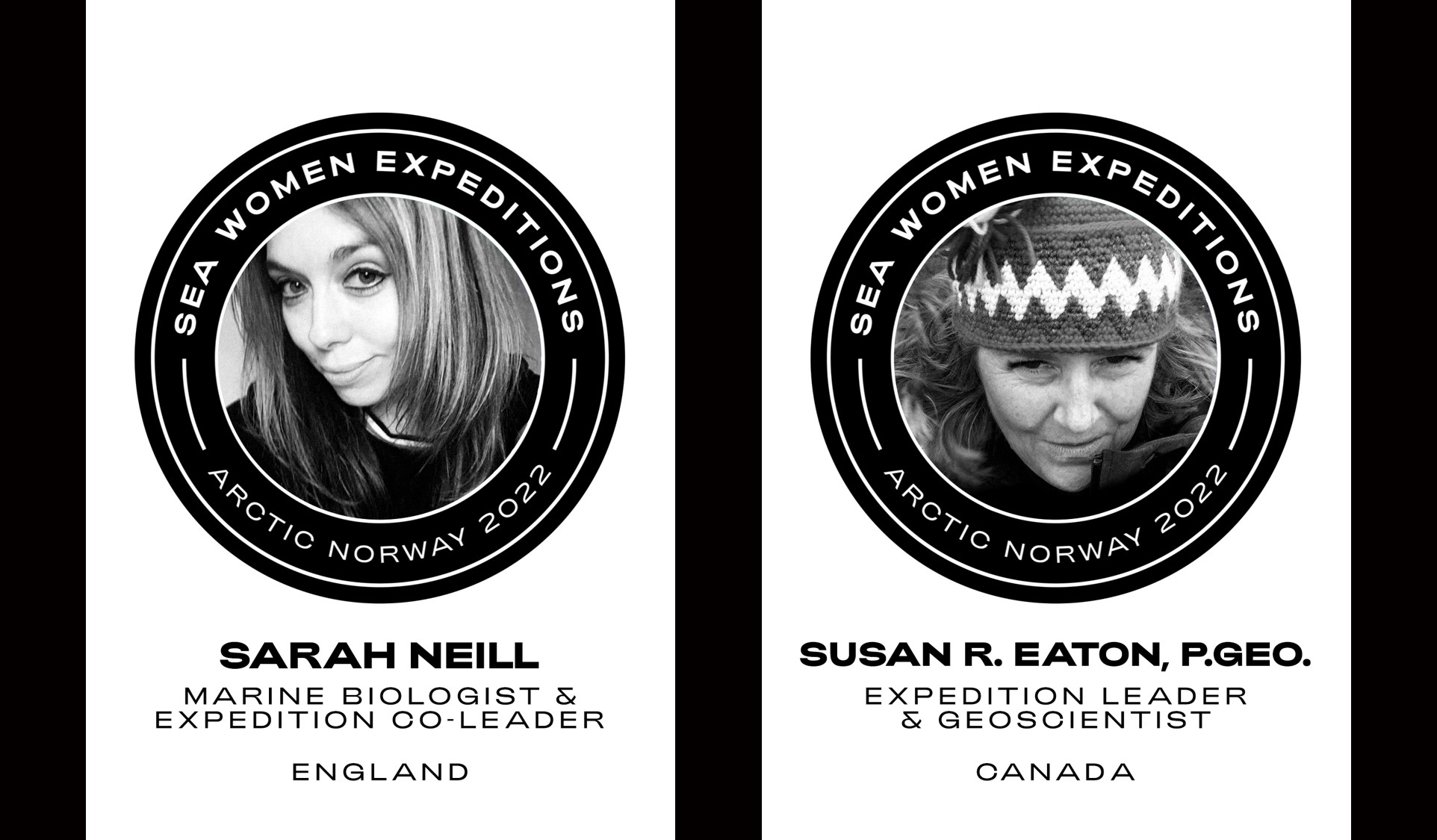
In today’s world, three issues are particularly important in the public mind: climate change, polar regions, and gender equality. But trying to reconcile all three areas is no simple matter. If you also want to do research, it becomes very complex. But that’s exactly what the women of Sea Women Expeditions are doing on their latest expedition to the fjord worlds of northern Norway.
The all-female Sea Women Expeditions team will observe orcas and other whales in northern Norway and record data on behavior and communication. In addition, environmental data will also be collected for comparison to study the effects of climate change on marine mammals. The 34-member team, led by Susan R. Eaton and Sarah Neill, will spend a lot of time in and on the water of the fjords with the research vessel MV Vestland Explorer in the coming weeks. In addition to three research programs in the fjords, however, participants will also conduct three leadership programs for women in Tromsø, strengthening women’s roles in society. “Women play a critical role in climate change adaptation and mitigation, and are at the forefront of environmental and climate justice movements that are driving innovative and effective approaches,” explains UN Women Gender Equality Program Director Sima Bahous.


Scientifically, the expedition is dedicated to the orcas and humpback whales that are currently in the northern Norwegian fjords due to the winter herring run, hunting for the coveted fish. Through snorkeling, the team hopes to document the animals’ response to human presence. For the past few years, this form of whale watching has boomed in the region. But more and more voices are being raised warning of the negative effects of divers and snorkelers. “The impacts of snorkeling with free-ranging killer whales are understudied,” said Sarah Neill, British marine biologist and SWX expedition co-leader. “There’s a need to add to baseline data to document this snorkeling with orcas in order to better inform management policies and ensure the sustainability of these ecotourism ventures.” In addition, environmental data will also be collected that will show the effects of climate change. “The oceans are the drivers of climate change on our planet. By studying what’s happening in Arctic waters, we can better predict what might happen on a planetary level,” explains Susan R. Eaton, geologist, journalist and conservationist. In addition to image and sound footage of the orcas and humpback whales, the team will also collect water samples for eDNA (environmental DNA) analysis to learn more about the other species found in the fjords.

However, the expedition not only wants to score points scientifically, but it also wants to move forward in terms of equality for women. “Women are largely absent from circumpolar exploration and policymaking, and we need to include their voices and knowledge” says Susan R. Eaton. That’s why the team is also made up of women from a wide range of disciplines, from art to research, from lawyers to professional divers, and also keepers of traditional knowledge. They are also expected to learn more about leadership roles and qualities in several programs over the next few weeks, an important goal of Sea Women Expeditions. “Sea Women Expeditions is building a community of skilled, connected and interested women ready and willing to to take a seat at the decision-making table,” explains Susan R. Eaton. That the concept of Sea Women Expeditions is working is shown by the fact that the organization has been recognized by the UN Decade Program “Ocean Research for Sustainable Development”, a high honor. For this, one likes to jump into the cold water of the Arctic.
Dr Michael Wenger, PolarJournal
More on the topic





